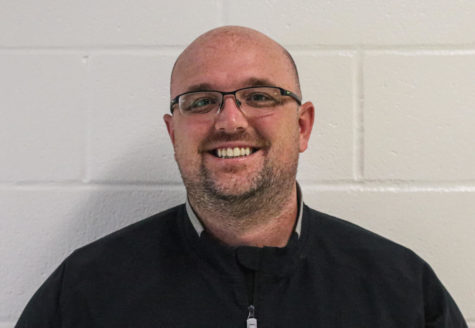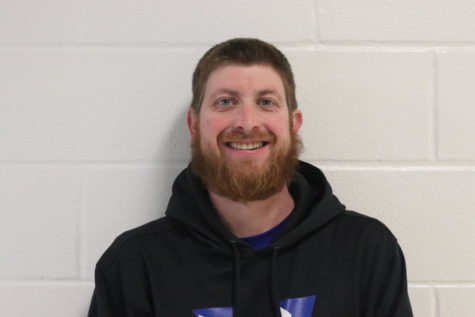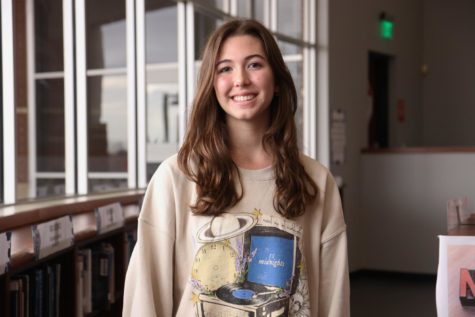Those behind the road to recovery
The shrill of the referee’s whistle echoes across the field as the stands go silent. A player lays on the field and athletic trainers are on the scene in an instant, assessing the injury. The team takes a knee as the player is quickly taken off the field for treatment. The road to recovery will be a long one, but with the help of the trainers dedicated to athlete recovery, it won’t be traveled alone. Here is a look into two of our own.

Athletic trainer Matt Moreau
Coach Matt Moreau received his masters degree in athletic and sports medicine at Georgia Southern University and kinesiology. He then received his Doctor of Athletic Training at A.T. Still University. Moreau has been an athletic trainer for 12 years as of 2023, and has been at Hebron for the past three years.
“I have an open door policy,” Moreau said. “If you have something you need to [talk about], come in [and] we can talk about it. [Athletes] are injured, and they’re being vulnerable with you. If they don’t [talk] to someone, they’re going to [channel their stress on themselves] and that’s never good. They need to be able to [confide] in someone”
Athletic trainers help students going through possibly traumatic times in their lives, dealing with painful injuries and emotional stress. While working with athletes, Moreau has to gain trust to better understand injuries, as well as create a safe space for strength and healing. This means athletes can rely heavily on trainers, not just for treatment, but also as someone to confide in.
“Maybe [athletes are] worried about a teammate, having trouble at home or [are] just frustrated with a parent,” Moreau said. “A lot of the time they’re hurting and don’t like being seen in that state, so they open up to you. I’ve gotten a lot closer to athletes that way.”
Moreau has spent the past three years dedicated to helping hundreds of athletes at Hebron overcome injuries. Whether it’s a sprained ankle or a double knee reconstruction, he has guided them to recovery with diagnosis, treatment plans and physical therapy.
“We always see [athletes] that have to struggle to overcome something,” Moreau said. But seeing them get through it all and get back to [their sport] at a high level, it’s just a reminder that you can overcome anything if you put your mind to it.”

Athletic trainer Jordan Wheat
Coach Jordan Wheat received his undergraduate degree in athletic training from TCU, and his masters in sports administration from Louisiana Northwestern State. Wheat has been an athletic trainer for eight years as of 2023, and this will be his second year at Hebron.
“Anytime an athlete comes back from long term rehab and they’re competing to their full potential, that’s always the best feeling,” Wheat said. “It’s always awesome to see [athletes] get back to where they were before an injury, knowing the small part I played in their rehab [helped] get them back on the field.”
Hebron is a 6A school with over 3,500 students, and with a large percentage of student athletes, it can be difficult to keep up with the amount of those who are injured. Athletes depend on the trainers for diagnosis, treatment, physical therapy and emergency care; the trainers spend the majority of their time taking care of athletes, from early morning practice to late night football games.
“In an ideal world, you want to know about every single injury and you want to make contact with every athlete,” Wheat said. “But in a school this size, it’s difficult. There’s a ton of athletes. For example, if somebody pulls their hamstring running track, they should come to us and receive treatment, but a lot of times athletes just push through it.”
The trust a trainer and athlete builds helps them to communicate better, leading to an accurate treatment and diagnosis. This means being honest with each other, for athletes to accurately describe pain and for trainers to decide the best course of action – even if that means sitting out.
“I’ve always been reminded in different ways that athletes are always going to know their body best,” Wheat said. “You really have to build trust with your athletes in order to be honest with them and with themselves. I think the best thing they’ve taught me is how to connect with them.”

Sophomore Bree Andrews is a reporter and this is her first year on staff. In her free time she enjoys spending too much time on Pinterest, watching cheesy...


